People
Faculty
| Image of Professor | Professor Information |
|---|---|
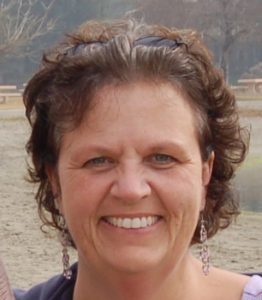 |
Jayne Howell, Co-Director and Advisor Professor, Anthropology Research and teaching interests: Education and employment, gender, migration, urban anthropology, ethnohistory, tourism, Mexico; Mexico, Latin America Dr. Howell (Ph.D. Anthropology SUNY Stony Brook, 1993) conducts research on gendered patterns of education, employment, and cityward migration in the state of Oaxaca, Mexico. She has published articles on rural teachers, domestic servants, gender role change, and, most recently, prostitutes. She is currently preparing a book length manuscript that incorporates all of these topics titled, Rural Girls, Urban Rural Women: Migration, Employment and Gender in Southeastern Mexico. The anthropology courses she teaches with content on Latin America include Peoples of Mexico and Central America, Economic Development in Latin America, Peasants, Colonialism, and Global Ethnography. She also teaches the Ethnographic Field School in Oaxaca (Mexico) each summer. |
 |
Alicia del Campo, Co-Director and Advisor Alicia del Campo Ph.D. Professor, Romance, German and Russian Languages and Lits. Areas of Specialization: Latin American Theater, Social Theatricalities and Performance, Representations of Memory, Gender, Latin American Cultural Studies, Human Rights and Literature. Courses: Span 341: Masterpieces of Latin American Literature Alicia del Campo, PhD. Is an Anthropologist (U of Chile) and Doctor of Literature (University of California, Irvine). She is co-director of the Latin American Studies. She is the author of the book Theatricalities of Memory: Rituals of Reconciliation in the Chile of Democratic Transition (Santiago / Minneapolis, Mosquito 2004), co-author of Figuraciones del mal: agresores y violencia política en el teatro chileno contemporáneo [Representations of Evil: perpetrators and political violence in Chile] (Santiago: Fondo Nacional de la Cultura y las Artes, 2019) with Daniela Cápona. She has edited the books: Theater in Dance, (Cádiz, 2008), Isidora Aguirre: Essential Anthology, (Santiago, 2007), co-edited: Traviesas de Paz and Campos de batalla, (Cádiz: 2004), Theatrical Discourses at the dawn of the 21st century (Irvine, 2001), Memory and Popular Culture (Riverside: 2009), The Other 9/11: Chile, 1973-Memory, Resistance, and Democratization (2016), Radical History Review. She is working on a book about Neoliberalism and Theatricalities of Resistance in the Student Movement in Santiago, Chile. She has published numerous articles on Latin American Theater, social theatricalities, and Latin American cultural studies in Chile, Brazil, Spain, Germany, and the United States. In 2008 she founded Teatro al Sur, a student theater collective dedicated to performing |
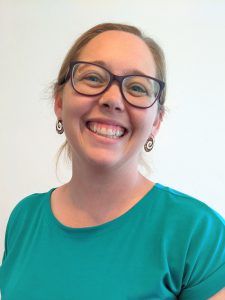 |
Caitlin Fouratt, Assistant Director and Advisor Assistant Professor, International Studies Ethnography, cultural anthropology, Central America, migration and immigration policy, asylum seekers and refugees, kinship and family. Caitlin E. Fouratt is a cultural anthropologist (PhD 2014, UC Irvine) whose work examines the intersections of migration, family, and state policies. She holds an MPhil in Latin American Studies from Cambridge University and previously worked as a research consultant at the International Center for Development Studies, in San José, Costa Rica. Dr. Fouratt’s book Flexible Families: Nicaraguan Transnational Families in Costa Rica (Vanderbilt Press, 2022) explores the intimate connections between Nicaraguan migrants in Costa Rica and their families in Nicaragua to understand how economic crisis, environmental pressures, and failed government policies contribute to the reconfiguration of care and kinship among transnational families. She argues that Nicaraguan transnational families cannot be understood in terms of an idealized or romanticized nuclear family but rather must be examined in the context of the decades of political, social, and economic crises that have plagued Nicaragua and the constantly shifting legal landscape of Costa Rica. For Nicaraguans, migration represents a strategy of caring for loved ones in the face of absent or failed forms of public care such as healthcare, education, and social security. However, for transnational families, the instabilities of Nicaraguan family-life are further complicated by the uncertainties migrants face in Costa Rica, including repressive immigration laws, poverty, and xenophobia. Her work demonstrates how intimate relationships and understandings of absence, presence, and care are reshaped as Nicaraguan families seek to care for one another across borders and in the face of the contradictory presences and absences of state policies on both sides of the border. Dr. Fouratt’s other research interests relate to refugees and forced migrants within Central America, and with state responses to shifting regional migration dynamics. She is actively involved in the Red de Jovenes Sin Fronteras, a youth association based in Costa Rica that advocates for and with refugee and migrant youth. At CSULB, Dr. Fouratt support study abroad initiatives and has taken students abroad, mentors Fulbright applicants, and has worked with CSULB undergraduate student research assistants through the University Honors Program, UROP, BUILD, and McNair Scholars programs. She is also director of the Global Migration Studies minor. Publications: Flexible Families: Nicaraguan Transnational Families in Costa Rica |
|
Assistant Professor, Human Development |
|
|
Professor, History Research and teaching interests: Spanish empire, Atlantic slavery, race & religion in Colonial Latin America |
|
|
Lecturer, Political Science and Chicano and Latino Studies Research and teaching Interests: Political Economy; Mexican, Chicano and Latino Politics; Labor and Inequality; Economic Democracy; Urban Racial and Ethnic Politics; Immigration; Latin American Politics; Social Movements; Postcolonial and Critical Theory; Politics in Entertainment Media |
|
|
Associate Professor,Chicano and Latino Studies |
|
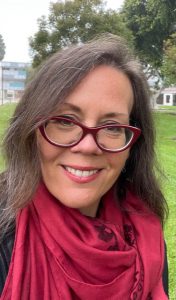 |
Professor, RGRLL SPAN 310, SPAN 550 Dr. Gasior came to CSULB via Purdue University, where she completed her dissertation on female monstrosity in 17th-century drama of the Atlantic World, in 2001. Since that time, she has taught a wide variety of courses in and beyond her department, including SPAN 310 (Introduction to literary analysis), SPAN 550 (Colonial Spanish-American literature), UHP 496/98 (Honors Research Methods), and UNIV 300 (Urban Poverty: Problems and Prescriptions). She and Mindy Badía are co-editors of Reconsidering Early Modern Spanish Literature through Mass and Pop Culture: Contemporizing the Classics for the Classroom. Juan de la Cuesta Hispanic Monographs, 2021 as well as Crosscurrents: Transatlantic Perspectives on Early Modern Hispanic Drama. Bucknell UP, 2006. She is also co-producer (with Badía) of a textbook, Redes Literarias: antología del texto hispánico en su contexto sociohistórico (McFarland P, 2018,). Her 2017 edited volume, with Yolanda Gamboa, Making Sense of the Senses in the Spanish Comedia (Juan de la Cuesta Press Hispanic Monographs, 2017,) was awarded the 2020 Vern Williamsen Comedia Book Prize. She has also published over two dozen articles in journals such as Hispania, Cervantes, Chasqui, and Hispanic Issues Online. Her most recent book project, a collaboration with two CSULB colleagues (B. Manke & M. Chang), Internships, High-Impact Practices and Provocative Praxis in Higher Education: A Social Justice Framework Based on Diversity, Equity, and Inclusion, is under contract with Routledge (2023). Dr. Gasior is also a certified Mental Health First Aid Instructor and has been a Faculty Fellow with the Chancellor’s Office since 2020. She is passionate about high-impact practices, study abroad and research with students. She was the recipient of a CSU system-wide FILA (Faculty Innovation and Leadership) award in 2019. |
 |
Professor, Political Science Dr. Haas’s teaching and research interests include Latin American Politics, women and politics, and religion and politics. Recent publications include, “Defining a Democracy: Reforming Laws on Women’s Rights in Chile, 1990-2002” (2005), in Journal of Latin American Politics and Society; “Changing the System from Within? Feminist Participation in the Worker’s Party in Brazil, 1989- 1995” (2001), in Gonzalez and Kampwirth, eds. Radical Women in Latin America: Right and Left; and “The Catholic Church in Chile: New Political Alliances” (1999), in Smith and Prokopy, eds. Latin American Religion in Motion. A book manuscript, Feminist Policymaking in Chile, is currently under review with Penn State Press. |
 |
PhD, MA/MS-Anthropologist and Associate professor in Human Development Lauren Heidbrink is an anthropologist and associate professor of human development at California State University, Long Beach. She is the author of Migrant Youth, Transnational Families, and the State: Care and contested interests (University of Pennsylvania Press 2014) and Migranthood: Youth in a new era of deportation (Stanford University Press 2020. She is the founder and editor of www.YouthCirculations.com. She received a Ph.D. in Anthropology from Johns Hopkins University and a Master’s in Public Service Management and International Studies from DePaul University. His research has been supported by the National Science Foundation, the Wenner Gren Foundation, the American Council of Learned Societies, and the Fulbright Schuman |
|
Professor, Geography |
|
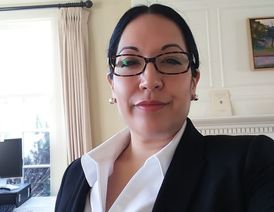 |
Associate Professor, Sociology Research and teaching interests: Migration, globalization, citizenship, critical urban studies, emotion and political participation, Qualitative research methods, Latin American and Latinx Studies, Feminist Studies |
 |
Associate Professor, Health Sciences Dr. Lopez-Zetina (Ph.D., University of Texas – School of Public Health, 1997) is an epidemiologist specializing in international health, the epidemiology of infectious diseases, and cross-cultural studies of drug addiction. His research has been supported by funding from the National Institutes of Health, the Centers for Disease Control, the Rotary Foundation, and the Fulbright Scholar Program. He has held appointments as Visiting Professor at the Mexican Universidad Veracruzana, and Universidad San Francisco de Quito, Ecuador. His work has appeared in Infectious Diseases, Addiction, and the American Journal of Epidemiology. Currently, he is conducting a study to examine cross-cultural correlates of substance abuse in the U.S./Mexico border. |
|
Claire Martin, Advisor Professor, RGRLL Research and teaching interests: The Long Nineteenth Century Latin American literature/studies; Women writers; Argentinean writers (XX-XXI) Dr. Martin received her B.A. and M.A. degrees from the University of Massachusetts, Amherst (1980-83), and her PhD. from Yale University in 1988. Her fields of expertise range from Spanish for heritage speakers to colonial literature, nineteenth-century Spanish American women writers and late twentieth-century Argentinean narrative. She has published: Alejo Carpentier y las crónicas de Indias : orígenes de una escritura americana. Hanover, N.H. : Ediciones del Norte, 1995, and more recently she co-authored (with Cristina Arambel Guiñazú) a two-volume work on nineteenth-century Spanish American women writers, Las mujeres toman la palabra: escritura femenina hispanoamericana del siglo XIX . Volumen I and Antología de escritoras hispanoamericanas del siglo XIX . Vol II. Frankfurt-Madrid: Iberoamericana, 2001. She has published extensively on the Cuban nineteenth-century writer Mercedes de Santa Cruz y Montalvo, known as the Condesa de Merlin. Since 1996, she has been contributing editor of “20th Century Prose Fiction in Argentina” for the Handbook of Latin American Studies, Volumes 56, 58, 60, 62 for the Hispanic Division of the Library of Congress. Most recently she was given the CSULB Outstanding Professor Award. |
|
|
Lecturer, Film and Electronic Arts |
|
|
Assistant Professor,Sociology |
|
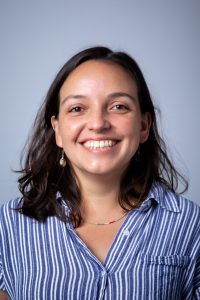 |
Paulina Pardo Gaviria Courses: Foundations in Art History, Latin American Art and Architecture; Art of Latin America; Art of Mexico Paulina Pardo Gaviria specializes in the history of modern and contemporary art of the Americas. Her scholarship focuses on the development of contemporary art under dictatorship in Brazil and examines the introduction of experimental artistic strategies beginning in the 1970s. Paulina’s current book project is the first substantial study of the work of Letícia Parente, a chemistry professor who developed a politically committed artistic practice through the use of video and image reproduction technologies. |
|
Professor, Religious Studies Dr. Piar, a native of Puerto Rico, obtained his Ph.D. in Religion/Social Ethics from the University of Southern California. He also holds a M.Div. and a Th.M. from Talbot Theological Seminary. He was appointed to the Department of Religious Studies in 1990. Prof. Piar has published a book titled “Jesus and Liberation: A Critical Analysis of the Christology of Latin American Liberation Theology” (1994). He has also written several articles on virtue ethics. He specializes in American Religions, Modern Christian Thought, and Religious Ethics. |
|
 |
Ulices Piña, Ph.D. Dr. Piña is currently revising a book manuscript tentatively titled, Rebellious Citizens: Democracy and the Search for Dignity in Revolutionary Mexico, which is under advance contract with Stanford University Press. Recent publications include: “Rebellion at the Fringe: Conspiracy, Surveillance, and State-Making in 1920s Mexico,” Journal of Social History, forthcoming; “Recent Trends in State Formation Studies on Latin America,” Latin American Research Review, Volume 57, Issue 1 (2022); “Los Angeles soccer is thriving, thanks to Latino fans. But it wasn’t always so,” The Washington Post, February 25, 2022; and “Digital Resources: Dark Tourism in Latin America,” in Oxford Research Encyclopedia of Latin American History, New York: Oxford University Press, 2021. |
|
Professor, Human Development |
|
|
|
Professor, Communications Studies Dr. José I. Rodríguez is an award-wining communication scientist at Long Beach State, where he is an expert in designing, delivering, and decoding persuasive messages. As Professor of Communication Studies, he has conducted innovative research on fear-based messages, social obligation, deception, empathy, intercultural communication, and popular culture. He has appeared on TEDx CSULB, ABC7 Eyewitness News, and KMEX 34 Univision in Los Angeles. |
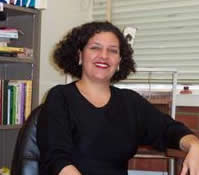 |
Professor, Chicano and Latino Studies Dr. Sandoval’s teaching interests include Feminisms of the Americas and Chicano Thought. Recent publications include, “Uniendo los lazos: Braiding Chicana and Mexicana Subjectivities,” in Decolonial Voices: Chicana/o Cultural Studies in the 21st Century (2002); “Forming Feminist Coalitions: The Internationalist Agenda of Helena Marta Viramontes” in Chicana Literary and Artisitic Expressions: Culture and Society in Dialogue (2000); and “Building Up Our Resistance, Chicanas in Academia,” appeared in a 1999 volume of Frontiers: A Journal of Women Studies.She currently has a book manuscript under contract with University of Texas Press, Toward a Latina Feminism of The Américas. |
